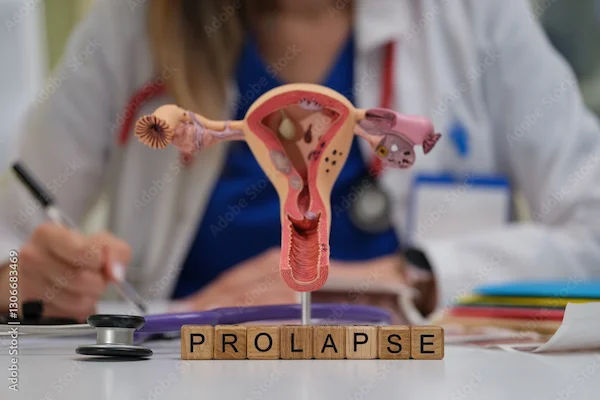Edema Overview: Symptoms, Causes, and Treatment
Edema causes swelling due to fluid buildup in the body’s tissues. Learn about its symptoms, causes, types, and effective treatment options to manage this condition better.

Written by Dr. Dhankecha Mayank Dineshbhai
Reviewed by Dr. M L Ezhilarasan MBBS
Last updated on 21st Aug, 2025

Edema is a common condition where excess fluid builds up in the body’s tissues, causing swelling. While it can happen anywhere, it most often affects the hands, feet, ankles, and legs. Edema can be mild or severe, temporary or chronic, depending on the underlying cause.
If you or a loved one is experiencing swelling, understanding the symptoms, causes, and treatment options can help manage the condition effectively.
Symptoms of Edema
The most noticeable sign of edema is swelling in the affected area. Other symptoms may include:
- Puffiness or swelling (especially in the legs, ankles, or feet)
- Skin that looks stretched or shiny
- Indentation (pitting) – When you press the swollen area, it leaves a dimple for a few seconds
- Heaviness or stiffness in the limbs
- Difficulty walking (if legs are swollen)
- Shortness of breath (if edema affects the lungs; called pulmonary edema)
If you experience sudden swelling, chest pain, or breathing difficulties, seek medical help immediately, as it could
indicate a serious condition.
Common Causes of Edema
Edema occurs when tiny blood vessels (capillaries) leak fluid into nearby tissues. This can happen due to:
1. Lifestyle Factors
- Sitting or standing too long – Gravity pulls fluid into the legs and feet.
- High salt intake – Excess salt makes the body retain water.
- Pregnancy – Hormonal changes and pressure on veins can cause swelling in the legs.
2. Medical Conditions
- Heart disease – Weak heart function can lead to fluid buildup (congestive heart failure).
- Kidney disease – Impaired kidney function reduces fluid filtration, causing swelling.
- Liver disease (cirrhosis) – Affects protein production, leading to fluid retention.
- Chronic venous insufficiency – Damaged leg veins struggle to return blood to the heart.
- Lymphedema – Blocked lymph nodes prevent proper fluid drainage.
- Allergic reactions – Some allergies cause localized swelling (e.g., face or throat).
3. Medications
Certain drugs can cause edema as a side effect, including:
- Blood pressure medications (calcium channel blockers)
- Steroids
- NSAIDs (like ibuprofen)
- Diabetes medications (thiazolidinediones)
If you suspect your medication is causing swelling, consult your doctor before stopping it.
Consult Top General Practitioner
How Edema Affects Health
While mild edema may just cause discomfort, severe or chronic cases can lead to:
- Skin infections (due to stretched, fragile skin)
- Reduced mobility (swollen legs make walking difficult)
- Breathing problems (if fluid accumulates in the lungs)
- Chronic pain (due to pressure on tissues)
Treatment and Management of Edema
The treatment depends on the underlying cause. Here are some general ways to manage edema:
1. Medical Treatments
- Diuretics (water pills) – Help the body remove excess fluid.
- Compression stockings – Improve circulation in the legs.
- Treating the root cause (e.g., managing heart or kidney disease).
2. Lifestyle Changes
- Reduce salt intake – Avoid processed foods and opt for fresh, low-sodium meals.
- Stay active – Walking helps pump fluid back to the heart.
- Elevate swollen limbs – Keep legs raised above heart level for 30 minutes, 3-4 times a day.
- Wear loose clothing – Tight clothes can restrict blood flow.
3. Home Remedies
- Gentle massage – Helps move excess fluid (avoid it if you have open wounds).
- Hydration – Drinking enough water helps flush out excess sodium.
- Epsom salt soak – Can reduce foot swelling (consult a doctor if you have diabetes).
When to See a Doctor
While mild swelling may resolve on its own, consult a doctor if you notice:
- Sudden, severe swelling
- Swelling with pain, redness, or warmth (possible infection or blood clot)
- Shortness of breath or chest pain
- Swelling that doesn’t improve with home care
If you're unsure about your symptoms, Apollo24|7 offers expert consultations where you can discuss your concerns with a healthcare professional.
Final Thoughts
Edema is often manageable with simple lifestyle changes and medical guidance. If you experience persistent swelling, don’t ignore it; early diagnosis and treatment can prevent complications.
For personalized advice, consider booking a consultation with a specialist through Apollo24|7 to get the right care for your condition.
Consult Top General Practitioner
Consult Top General Practitioner

Dr. Anand Ravi
General Physician
2 Years • MBBS
Bengaluru
PRESTIGE SHANTHINIKETAN - SOCIETY CLINIC, Bengaluru

Dr. Syed Ismail Ali
General Practitioner
7 Years • MBBS
Hyderabad
Apollo 24|7 Clinic, Hyderabad

Dr Syed Mateen Pasha
General Physician
2 Years • MBBS
Bengaluru
PRESTIGE SHANTHINIKETAN - SOCIETY CLINIC, Bengaluru

Dr. Johnson. S
General Practitioner
7 Years • MBBS MD(Preventive and social Medicine)
Pune
Apollo Clinic, Nigdi, Pune

Dr. Madhuri Sai Sreepada
General Practitioner
9 Years • MBBS
Hyderabad
BRIGHT SMILES MEDICARE & DENTAL CARE, Hyderabad
Consult Top General Practitioner

Dr. Anand Ravi
General Physician
2 Years • MBBS
Bengaluru
PRESTIGE SHANTHINIKETAN - SOCIETY CLINIC, Bengaluru

Dr. Syed Ismail Ali
General Practitioner
7 Years • MBBS
Hyderabad
Apollo 24|7 Clinic, Hyderabad

Dr Syed Mateen Pasha
General Physician
2 Years • MBBS
Bengaluru
PRESTIGE SHANTHINIKETAN - SOCIETY CLINIC, Bengaluru

Dr. Johnson. S
General Practitioner
7 Years • MBBS MD(Preventive and social Medicine)
Pune
Apollo Clinic, Nigdi, Pune

Dr. Madhuri Sai Sreepada
General Practitioner
9 Years • MBBS
Hyderabad
BRIGHT SMILES MEDICARE & DENTAL CARE, Hyderabad




